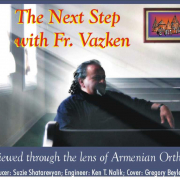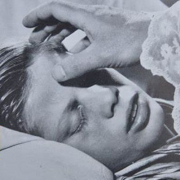Coronation charge
Armodoxy for Today: Coronation
Like so many
people, I watched the Coronation of King Charles III Saturday morning, here on the West Coast of America. Yes, I said many people. An estimated 19.3 million tuned in via BBC One and 11.7 million on ITV at home, while global audience figures are said to have reached 2.5 billion. That’s about a third of the earth’s population. Obviously, the Monarchy is of interest to many more than the citizens of the United Kingdom. Watching the Coronation will give you an ideas as to why.
It was almost 70 years to the day that the coronation of King Charles’ mother, Queen Elizabeth II took place (June 2, 1953). King Charle’s Coronation was the first view most of the world’s population had of this ceremony, and in splendid color at 4K and 8K definition, with opportunities to rewind vows, still the frame over jewels and zoom in on background expressions. For me, the excitement was with all of it, especially over the words that shared this service with the common man.
I was taken by the similarities between the Coronation and the ordination of the priest in the Armenian Church. From the vestments, to the prayers over the vestments to the holy oil dripping from the golden dove, I kept thinking who’s taking from who? Who’s adopting or adapting from who?
The opening declaration set the tone for the Coronation and hooked me, ”Your Majesty,” said two youngsters dressed in royal attire, “As children of the kingdom of God we welcome you in the name of the King of kings.”
The emphasis throughout the ceremony was on service, that King Charles had come to serve, not to be served. The Scriptural reading came from the Gospel of Luke, chapter 4, where Jesus proclaims his own mission. It is read at the consecration of every priest in the Armenian Church, it has been the cornerstone of my ministry and now I was hearing it along with the King and the millions listening:
“The Spirit of the Lord is upon Me,
Because He has anointed Me
To preach the gospel to the poor;
He has sent Me to heal the brokenhearted,
To proclaim liberty to the captives
And recovery of sight to the blind,
To set at liberty those who are oppressed;
To proclaim the acceptable year of the Lord.”
To serve others. Authority. Structure. Beauty. Splendor. Magnificence. Solemnity. Sacredness. Holy. Set apart from our daily experience. All things that came to my mind as to why this scene, which was being broadcast into our homes and across phones and tablets, was so appealing to me and so many others. But let’s not fool ourselves. It comes with a price, a price defined by the relationship of church and state.
The Archbishop of Canterbury installed the King of England. In turn the King is the head of the Church of England. In the Armenian Church we’ve had these close ties between church and state, especially within the conversion story, with St. Gregory the Illuminator and King Tirtad in the 4th century. Today, in the West, especially here in the United States, the separation of church and state are part of our constitution. That separation too, comes with a price, a price that we often are willing to pay, by abandoning the sanctity of freedom.
“My country ‘tis of thee,” a song we learn here in the States is the “America” hymn, set to the words of “God save the King.” As I heard it song at the Coronation, I must admit I was moved and swelled with emotions, don’t ask me why. But still, it’s a reminder that there was a reason why the American Revolution took place. There was a reason why independence was declared, and it had to do with the basic freedom to choose, yes, to choose your own fate and destiny.
I can’t even imagine having a head-of-state who de facto is the head of the Church. A President or a Prime Minister who is the head of the church? In the case of the Conversion of Armenia, it’s a beautiful and poetic story: Armenia became the first Christian nation.
Faith, never has, nor can it ever be mandated or legislated.


 2014 Fr. Vazken
2014 Fr. Vazken
 1993 Fr. Vazken
1993 Fr. Vazken
 2019 Fr. Vazken
2019 Fr. Vazken




Leave a Reply
Want to join the discussion?Feel free to contribute!